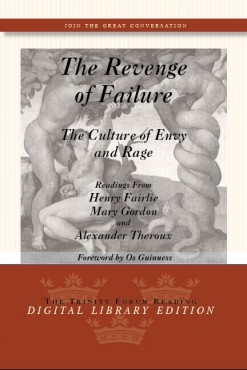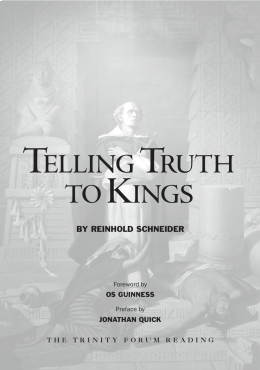A Jewish concentration camp inmate is pulled from work detail at a makeshift hospital to listen to a dying Nazi soldier’s confession. The soldier asks him for forgiveness that he might die in peace. In the Jew’s place, what would you have done?
In this Reading with a Foreword by Os Guinness, Simon Wiesenthal gives his account of this incident that happened in Poland during World War II, challenging readers with the moral question of forgiveness. If a murderer is truly repentant, should he be forgiven? Are some actions too horrible to forgive? Can you forgive someone for something done to someone else? Or can you forgive, as a member of a larger community?
These tough questions are relevant for us today. As Os Guinness points out in the foreword, forgiveness is tricky business and should not be taken for granted or issued flippantly. Forgiveness too quickly given can easily become cheap grace, somehow dismissing the wounds of the inflicted or justifying the behavior of the wrongdoer. True forgiveness is costly, where the wronged relinquishes the right for retribution. And yet, through forgiveness, both the wronged and the wrongdoer find release, freedom, and the power to move on.
In an age of increasing violence and political unrest throughout the world, the issue of forgiveness is one that modern people need to consider and better understand.
A new Preface by award-winning director Laura Waters Hinson helps connect this theme with present-day post-genocide Rwanda and other situations.



